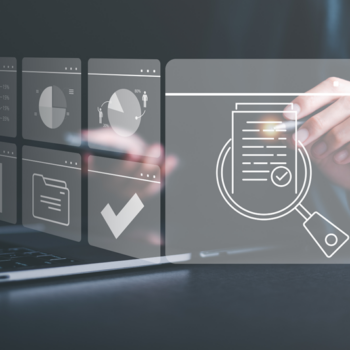
Digital Transformation in Accounting
- Posted by admin
- On November 28, 2024
- 0 Comments
Digital transformation is fundamentally reshaping accounting practices in the United Kingdom, ushering in a new era of efficiency, accuracy, and strategic insight. As businesses across all sectors embrace technology to streamline operations, accounting professionals are leveraging digital tools and innovative solutions to enhance financial reporting, compliance, and decision-making. Let’s delve into the profound impact of digital transformation on modernizing accounting practices in the UK.
Embracing Technological Advancements in Accounting
Cloud-Based Accounting Software
Cloud technology has revolutionized accounting by enabling real-time data access, collaboration, and scalability. Cloud-based platforms like Xero, QuickBooks Online, and Sage Business Cloud are widely adopted by UK businesses, offering seamless integration with banking, payroll, and reporting functions. This allows accountants to work from anywhere, ensuring flexibility and accessibility to financial data.
Automation of Routine Tasks
Robotic Process Automation (RPA) and AI-powered software automate repetitive accounting tasks such as data entry, invoice processing, and reconciliation. This automation not only saves time but also reduces the risk of human error, leading to higher accuracy in financial reporting. Accountants can allocate more time to value-added activities like analysis and strategic planning, thereby enhancing overall productivity.
Advanced Data Analytics
Data analytics tools provide deeper insights into financial performance, trends, and patterns. By harnessing big data, accountants can identify opportunities, mitigate risks, and optimize decision-making processes. Predictive analytics also enable proactive financial management, allowing businesses to anticipate market changes and adapt strategies accordingly.
Blockchain Technology
Blockchain is revolutionizing financial transactions and audit trails. In the UK, blockchain-based solutions are enhancing transparency, security, and trust in accounting processes, particularly for transactions and compliance. Smart contracts powered by blockchain technology automate contract execution, reducing administrative overhead and minimizing disputes.
Making Tax Digital (MTD)
MTD is an initiative by the UK government aimed at making it easier for businesses and individuals to get their tax right and keep on top of their affairs. This requires businesses to use digital software to maintain their tax records and submit their VAT returns digitally.
Regulatory Landscape and Compliance Challenges
As technological advancements continue to reshape industries, including finance and accounting, regulatory frameworks must evolve to ensure transparency, security, and accountability. In the UK, regulatory oversight of financial reporting and compliance falls under the purview of organizations such as the Financial Reporting Council (FRC) and the Financial Conduct Authority (FCA). These bodies are tasked with setting and enforcing standards that govern financial practices, ensuring that businesses operate ethically and transparently.
The integration of digital technology has presented both opportunities and challenges for regulatory compliance. On one hand, digital tools enable businesses to streamline processes, improve accuracy, and enhance data security. On the other hand, they introduce complexities related to data privacy, cybersecurity, and regulatory alignment.
Several regulations and standards play a critical role in shaping compliance requirements in the digital era:
General Data Protection Regulation (GDPR)
GDPR governs the collection, storage, and processing of personal data within the EU, including the UK. Compliance with GDPR is essential for businesses handling customer data, requiring robust data protection measures and adherence to strict reporting obligations.
Financial Reporting Standards (FRS)
FRS issued by the FRC establishes the guidelines for financial reporting, including the use of digital tools for financial disclosures. Recent updates to FRS reflect the growing importance of digital transformation in accounting practices.
Anti-Money Laundering (AML) Regulations
AML regulations require businesses to implement measures to prevent money laundering and terrorist financing. In the digital era, these regulations extend to online transactions and electronic fund transfers.
Cybersecurity Guidelines
The National Cyber Security Centre (NCSC) provides cybersecurity guidance to businesses, emphasizing the importance of proactive risk management and incident response strategies. This includes implementing encryption, multi-factor authentication, and regular security audits to mitigate cyber threats.
Trends Shaping Digital Transformation in Accounting
Several trends are driving the adoption of digital technology in accounting:
Remote Work and Collaboration
The shift to remote work has accelerated the adoption of cloud-based solutions, enabling seamless collaboration among accounting teams and clients.
Data Analytics and Business Intelligence
Advanced analytics tools provide deeper insights into financial data, empowering accountants to make informed decisions and identify opportunities for business growth.
Cybersecurity and Data Privacy
With increased digitization comes the critical need for robust cybersecurity measures to protect sensitive financial information and ensure compliance with data privacy regulations.
Automation of Compliance Tasks
Digital tools automate compliance tasks, such as tax calculations and regulatory reporting, reducing the risk of errors and non-compliance.
Benefits of Digital Transformation in Accounting
Enhanced Efficiency and Productivity
Digital tools streamline workflows, reduce manual errors, and accelerate financial processes, leading to greater efficiency and productivity. Accountants can handle complex tasks more efficiently, enabling faster month-end closings and improved financial reporting timelines.
Improved Accuracy and Compliance
Automation and digital solutions enhance accuracy in financial reporting and ensure compliance with regulatory frameworks, minimizing risks of errors and penalties. Real-time data updates and automated reconciliation processes contribute to more reliable financial statements.
Real-Time Reporting and Decision-Making
Cloud-based accounting enables real-time reporting and access to financial data, empowering businesses to make informed decisions promptly. Accountants can generate customized reports and dashboards to track key performance indicators (KPIs) and identify emerging trends, facilitating data-driven decision-making.
Client Collaboration and Service Delivery
Digital platforms facilitate seamless collaboration between accountants and clients, enabling remote access, instant communication, and improved client service delivery. Cloud-based document sharing, and virtual meetings enhance client interactions, fostering stronger relationships and trust.
Cost Saving
Digital transformation reduces operational costs by automating routine tasks, minimizing paper-based processes, and reducing the need for physical storage. Cloud-based solutions also reduce the costs associated with maintaining and updating traditional accounting software.
Challenges and Opportunities in the Digital Era
Challenges and Compliance Considerations
Navigating UK regulations in the digital era poses several challenges for businesses:
- Data Security and Privacy: Ensuring compliance with data protection regulations while leveraging digital technologies requires robust cybersecurity measures and privacy controls.
- Regulatory Alignment: Businesses must align their digital strategies with evolving regulatory standards to mitigate compliance risks and avoid penalties.
- Skills and Training: The adoption of digital tools necessitates ongoing training and upskilling of employees to ensure competence in compliance practices.
Opportunities for Innovation and Efficiency
Despite challenges, embracing digital transformation presents opportunities for innovation and efficiency in compliance:
- Automation: Digital tools automate compliance tasks, reducing manual effort and minimizing errors in reporting.
- Enhanced Transparency: Blockchain technology can enhance transparency in financial transactions, improving auditability and accountability.
- Real-Time Reporting: Cloud-based solutions enable real-time reporting, enhancing decision-making and responsiveness to regulatory changes.
Conclusion
Digital transformation is reshaping accounting practices in the UK, driving efficiency, accuracy, and compliance to new heights. By embracing digital technology and staying abreast of regulatory developments, accounting professionals can position themselves for success in the evolving landscape of modern accounting. The future of accounting is undeniably digital, and those who embrace this transformation will lead the way in delivering value-added services and driving business growth.











0 Comments